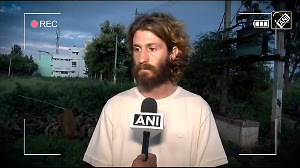The Supreme Court on Monday asked for the Centre's response to a plea which sought a fresh interpretation of the term juvenile saying instead of 18 years age limit, the ‘mental and intellectual maturity' of such offenders be considered while fixing their culpability.
"Issue notice. Meanwhile, give a copy (of petition) to the Union of India," a bench of justices K S Radhakrishnan and Dipak Misra said on Janata Party President Subramanian Swamy's petition. The bench also decided to tag the plea of Swamy with other petitions saying they ‘more or less’ also deal with the similar issues.
During the hearing, Swamy said the Juvenile Justice (Care and Protection of Children) Act provides for a ‘straitjacket’ interpretation of term juvenile that a person below the age of 18 years is a minor and it was in violation of the United Nations Convention for the Rights of the Child and Beijing Rules on the issue.
The UNCRC and Beijing Rules say the presumption of ‘the age of criminal responsibility" be fixed while "bearing in mind the mental and intellectual maturity’ of offender, he said. A provision of the JJ Act says a ‘juvenile’ or 'child' means a person who has not completed eighteenth year of age."
"I submit, that since it was the intention of Parliament, as stated in the Preamble, to enact JJA in consonance with the ratified UNCRC and Beijing Rules it is prayed that this court after hearing the UOI if necessary, may read the words 'mental and intellectual maturity' into the wording of Section 2(k) on the age of innocence," he said.
Swamy, in his plea, also cited the alleged role of a juvenile in the December 16 gang rape of a 23-year old girl in a moving bus in New Delhi who later died at a Singapore hospital.
The present interpretation of term juvenile has the effect of ‘nullifying’ the fundamental right to life of the victim, he said in the plea. Swamy said India, which had ratified the the UNCRC, 1989 and adopted the United Nations Standard Minimum Rules for the Administration of Juvenile Justice [Beijing Rules (1985), later enacted the JJ Act.
However, the presumption of age of criminal responsibility has been fixed on the 18 years age limit in contravention of the Beijing Rules which say that ‘the mental and intellectual maturity’ of the offender be considered while fixing criminal culpability, he contended, adding that the term juvenile needed to be revisited.
He also said "...any current ongoing trial under the JJ Act the age of criminal responsibility must be decided after reading into Section 2(k) the words: 'provided that the juvenile in conflict with law is mentally and intellectually not sufficiently mature to be treated as an adult for the nature of crime allegedly committed’.
"The JJ Act was never intended to provide cover to hardened criminals who have nothing redeemable about their behaviour like the alleged instant crime of rape and murder to have been committed on the night of December 16, 2012, which partakes of such an experienced diabolical nature that it is not that of a child, nor can any person who has committed it, ever be accepted as a child.
"Such an offender must have known what he was doing, and hence emotionally and intellectually mature to stand trial as an adult under Sections 83 r/w 302 and others of the Indian Penal Code," Swamy said in his plea.









